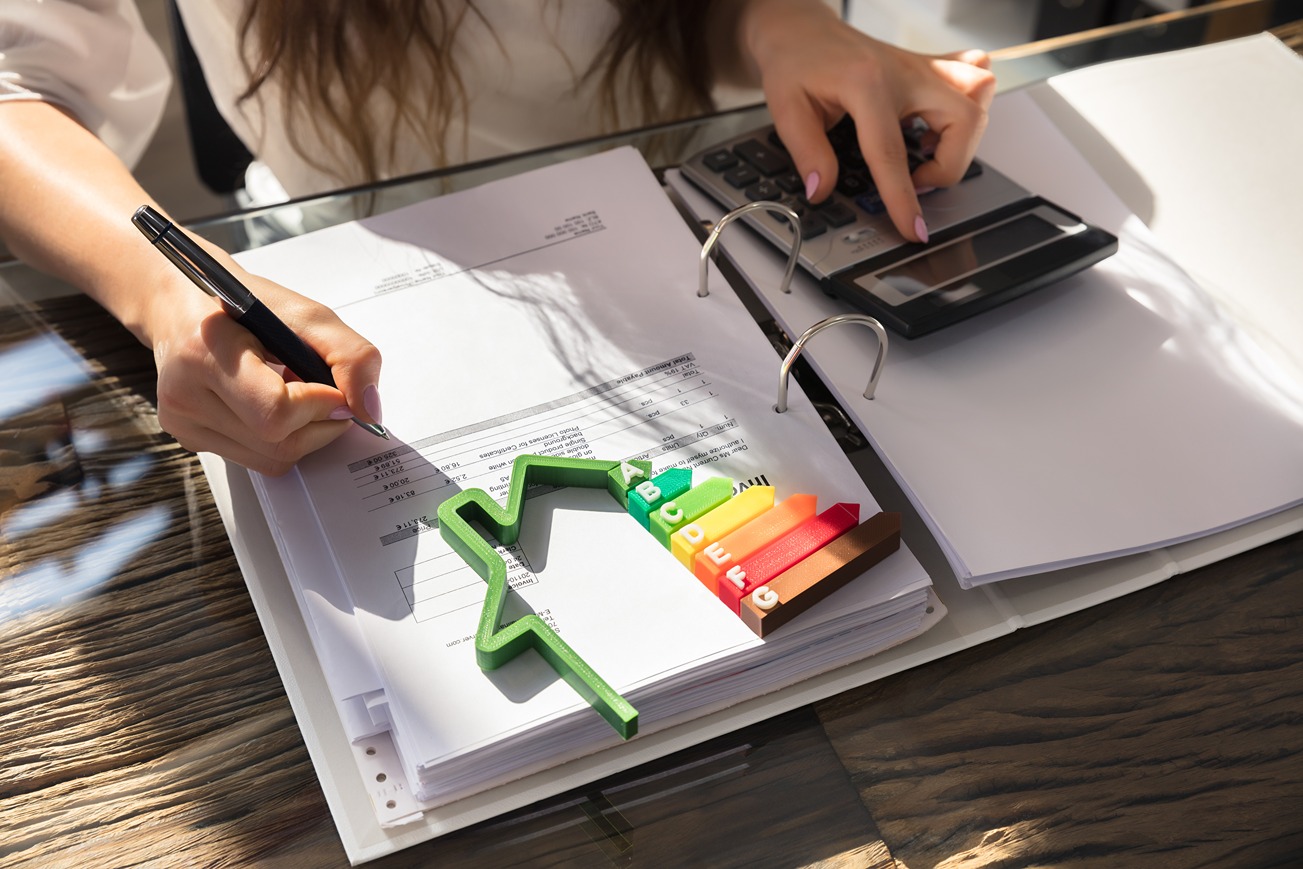
Home Security Tips
Your home should be your safe space – somewhere you can relax without worrying about break-ins. The good news is that home security doesn’t have to be complicated or costly, and there are several ways to secure your property.
You don’t need to turn your home into a fortress – a few smart choices can make all the difference. Whether you’ve just moved into a new build home or want to enhance your current property’s protection, our practical household security tips can help you feel more secure and give you peace of mind.

1. Install a burglar alarm
A visible burglar alarm is one of the best investments you can make for your home’s security. Seeing alarm boxes and warning stickers can be enough to deter intruders from breaking in.
Look for alarm systems that are British Standard (BS) approved, as they meet strict safety and quality standards. Make sure your alarm has the following key features:
- Motion detectors for your main living areas and hallways
- Door and window sensors on all entry points
- External sounders that let neighbours know if there’s trouble
- 24/7 monitoring services for added protection
- Smartphone apps so you’re always in the loop
- Battery backup to keep you protected even during power cuts
2. Upgrade your locks
Good quality locks are your home's first line of defence. Even if your current locks are functioning properly, upgrading to stronger ones can provide your home with an extra layer of protection.
Some smart lock upgrades to consider include:
- BS-approved deadlocks on all external doors
- Smart locks with keypad or smartphone access for convenience
- Window locks, especially on ground-floor windows
- Extra chains and bolts inside your doors for added safety
Should I change my locks when moving into a new home?
If you’re moving into a new home, replacing your locks should be high on your to-do list – you never know who might have copies of the previous keys. It gives you more control over who can access your property and makes your home more secure right from the start. Plus, it’s a great opportunity to upgrade to stronger locks.
3. Install motion-sensor lights
Motion-sensor lights detect movement inside or outside your home, which can help keep burglars at bay. They’re useful whether you’re at home or away, giving you round-the-clock reassurance.
Outdoor motion lighting
Outdoor motion-sensor lights are particularly effective for home security. When installing these lights, it’s important to think carefully about where you place them:
- Light up driveways and pathways to help you see clearly
- Place lights near entrances like front and back doors, garages and sheds
- Add lighting around dark corners or hidden areas of your garden
- Use solar-powered options for spots without power access
Indoor motion lighting
Indoor motion lighting also plays a key role in keeping your home safe by alerting you to movement inside, day or night. It also makes it look like someone’s home, even when you’re not there.
Here are some ways to use indoor lighting to improve your home’s security:
- Set living room and bedroom lights on timers when you’re away. Make sure to vary the timing so it looks more realistic to anyone who may be observing your property
- Use smart bulbs that can be controlled remotely
- Consider hallway lights with motion sensors for nighttime safety
4. Lock your doors and windows
Many break-ins happen because doors and windows have been left unlocked. Making quick security checks part of your daily routine is one of the easiest and most effective home security tips you can follow.
Some simple daily security steps you can take are:
- Checking all windows and doors before heading out or going to bed
- Securing patio, garage and utility room doors
- Keeping your doors locked, even when you’re home
- Closing and locking windows whenever you leave a room, especially ground-floor ones
5. Protect your home while on holiday
Worried about break-ins while you’re away? These simple steps can keep your home safe:
- Cancel regular deliveries like newspapers or magazines to prevent them from piling up and signalling that you’re away
- Secure pet flaps and cat doors
- Ask a trusted neighbour to collect any post and move bins
- Set indoor lights on timers to make it look like someone’s home
- Hold off on sharing holiday photos online until you’re back – posting them while you’re away lets people know your home is empty
6. Secure your garages and sheds
Outbuildings are often overlooked when it comes to home security, but they can be an easy target for burglars and sometimes an easy way into your home. Fortunately, securing them is usually quite straightforward.
To keep your garage safe:
- Fit quality locks on all garage doors
- Lock any doors that lead into your home
- Consider connecting garage sensors to your main alarm system
- Keep valuable tools out of sight
To protect sheds and outbuildings:
- Use good padlocks and strong fastenings
- Consider alarms if you store valuable items in your shed
- Secure tools and equipment with chains or wall mounts
- Lock away ladders and tools that could help someone access your home
Many home insurance policies offer better rates when outbuildings are properly secured, so it's worth checking what your policy requires.
7. Store keys safely
Do you keep spare keys under a plant pot in the front garden? It’s a common hiding place, but not a safe one. Instead, think about installing a wall-mounted combination lockbox in a discreet location. These lockboxes are designed to resist hammering and sawing, making it more difficult for intruders to access your keys and gain entry to your home.
Some additional ways to keep your keys safe include:
- Keeping keys out of sight from windows and doors
- Storing spare keys in a small home safe
- Using keyless entry systems to remove the risk of lost or stolen keys
8. Choose strong passwords for smart home apps
Smart home technology can enhance your security, but it only works well when it's protected with strong passwords and the right security settings. As these systems become more popular, they're increasingly targeted by cybercriminals.
To keep your smart home security strong, try these simple tips:
- Use unique, complex passwords for all your smart home apps
- Turn on two-factor authentication whenever it’s available
- Keep your smart device software updated
- Create a separate WiFi network for smart home devices
- Review app permissions and privacy settings regularly
Here are some common smart devices to keep an eye on:
- Smart doorbells and security cameras
- Smart locks and access control systems
- Home automation hubs and controllers
- Security system apps and monitoring services
- Smart lighting and heating controls, as they’re usually connected to your home network
9. Consider your garden’s landscape
How you design your garden can make a big difference to your home’s security. A few simple landscaping choices can create natural barriers for intruders without turning your outdoor space into a fortress.
Try these simple garden design ideas for better home safety:
- Plant thorny shrubs like roses or hawthorn under ground-floor windows to make it more difficult for burglars to get in
- Keep hedges below window level to maintain good visibility
- Trim bushes and trees away from walls and climbing spots
- Opt for gravel paths that create noise when walked on
10. Think about getting a dog
Dogs can be great for home security. Even small dogs will let you know if something’s off, and most burglars avoid homes with dogs altogether.
If you’re thinking about getting a dog for security, choose one that suits your home and lifestyle. Make sure they’re well trained – not just to keep you safe, but also to fit in well with your family. Just remember – dogs are a long-term commitment and come with ongoing costs, so it’s important to think carefully about your decision.
If getting a dog isn’t right for you, you can still create the impression that you have one. Put up a ‘Beware of the Dog’ sign or use motion-activated alarms that play realistic dog barks when someone approaches your property.
11. Hide your valuables
Hiding your valuables might be an old trick, but it’s still one of the most effective. Jewellery, electronics and other prized possessions can catch unwanted attention if left in plain sight. Avoid placing them near windows and use curtains or blinds to prevent people from peeking inside your home.
A fireproof safe is a smart choice for important documents and smaller valuables. For high-value items, consider a larger safe. If something is especially valuable, a safe deposit box might be a better option. Just make sure any safe you use is firmly bolted to a wall or the floor to keep it secure.
It’s also worth photographing your more valuable items and keeping receipts or certificates stored safely for insurance purposes. Avoid placing valuables near windows and use curtains or blinds to prevent passersby from peeking inside. Don’t forget to review your home insurance – the value of your belongings can change over time, so it’s important to check that your coverage is sufficient.
Explore our range of new build homes, designed with your safety and security in mind.
Contact or visit our Sales Advisers today to start your homebuying journey today.
Home Security FAQs
-
There’s no one-size-fits-all answer – what works best depends on your specific needs and circumstances. Alarms and CCTV play different roles in home security: alarms alert you and deter intruders, while CCTV records video footage of your property, providing evidence if an incident occurs. Using both can offer the best protection. e security may be to use a combination of both, tailored to your specific needs and circumstances.
-
Common home security mistakes include leaving doors or windows unlocked, hiding keys in obvious places, keeping valuables in plain sight and forgetting to secure sheds or garages.
-
New build homes are often more secure than older ones, thanks to modern locks, alarm systems and up-to-date building standards. But no home is completely risk-free. When you move in, check key security features, such as locks, alarms and motion-sensor lighting, to ensure they meet your needs.



